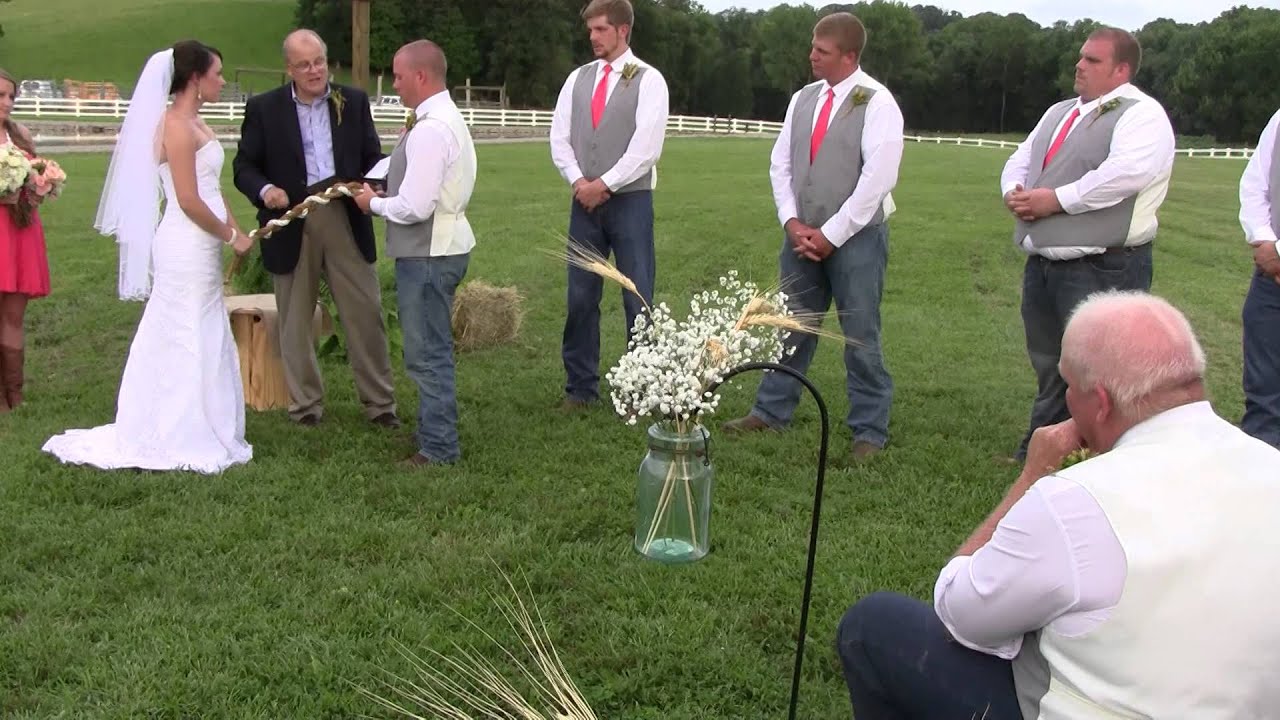When planning their wedding, couples have the freedom to include ceremonies and rituals that are personally meaningful. For instance, they might incorporate a cultural tradition or unity ceremony, such as the ring-warming ceremony, to strengthen their union.
The Cord of Three Strands is a unity ceremony wherein the bride and groom braid three cords together. The cords typically represent the bride, groom, and God, but couples can personalize the ceremony itself and what it means for them.
The officiant’s task, through the Cord of Three Strands wedding script, is to explain the significance and symbolism of the ceremony. They also have to give the cue to the couple to start braiding the strands.
Below is a more in-depth explanation of what The Cord of Three Strands unity ceremony means and how it is performed. Sample scripts for The Cord of Three Strands are also provided, followed by a free PDF you can use for your wedding.
What is a Cord of Three Strands Ceremony at a Wedding?
Also known as “God’s Knot,” this tradition has roots in the Bible. The book of Ecclesiastes 4: 9–12 states:
9Two are better than one because they have a good reward for their toil. 10For if they fall, one will lift up the other; but woe to one who is alone and falls and does not have another to help.
11Again, if two lie together, they keep warm; but how can one keep warm alone? 12And though one might prevail against another, two will withstand one. A threefold cord is not quickly broken.
Materials for the Ceremony
Couples typically use three distinct colors for the strand.
- White → symbolizes the bride. This shade signifies the bride’s purity. Moreover, in a lot of cultures, white is designated as the bridal color.
- Purple → represents the groom. The color purple symbolizes majesty, luxury, and prosperity.
- Gold → stands as the representation of God’s glory and divinity.
The three cords are attached to a metal ring, which the groom will hold.
Most couples buy the cords they need. However, relatives — such as their parents — can volunteer to make the cords themselves or pass down what they used in their ceremony.
How the Ceremony Is Done
As with any unity ceremony, the officiant begins with an explanation of what the ritual means. They will clarify the symbolism of the strands and their colors, along with why the couple chose to include the Cord of Three Strands.
You can include a reading from the Bible, such as Ecclesiastes 4: 9–12, in the script. If you need a shorter version, Ecclesiastes 4: 12 will suffice.
As the officiant speaks, the bride will knot the cords together, symbolizing their union as partners with God at the heart of their relationship. Afterward, the officiant will secure the couple’s bond by either putting the knotted cords over their shoulders or insecurely tying their hands.
After your special day, your cords become a sentimental and significant keepsake. If you buy the materials online, they may come with a kit for preserving and displaying the strands. Once your children get married, you can pass the cords down for them to use.
When the Ceremony Is Done
Typically, the Cord of Three Strands comes after you and your partner exchange vows. Work with your officiant to determine the precise order, especially if you have multiple unity ceremonies in your timeline.
Unity ceremonies usually last between one to three minutes. Keep this duration in mind as you write a Cord of Three Strands wedding script, as you do not want your ritual to be too short or too long.
Can the Ceremony Be Done at Non-Religious Weddings?
Because of its alternative name “God’s Knot,” you might think that the Cord of Three Strands is only suitable for religious ceremonies. However, that is not the case.
Many couples opt to have this ceremony in their vow renewals. In this situation, this unity ceremony affirms and strengthens their commitment to each other and the Lord.
You can also incorporate this unity ceremony into non-religious weddings. You and your partner get to decide what the third cord — or all the cords, for that matter — symbolizes. However, in this case, it might be more suitable to call the ritual the “Unity Braid.”
Cord of Three Strands Wedding Script: Examples
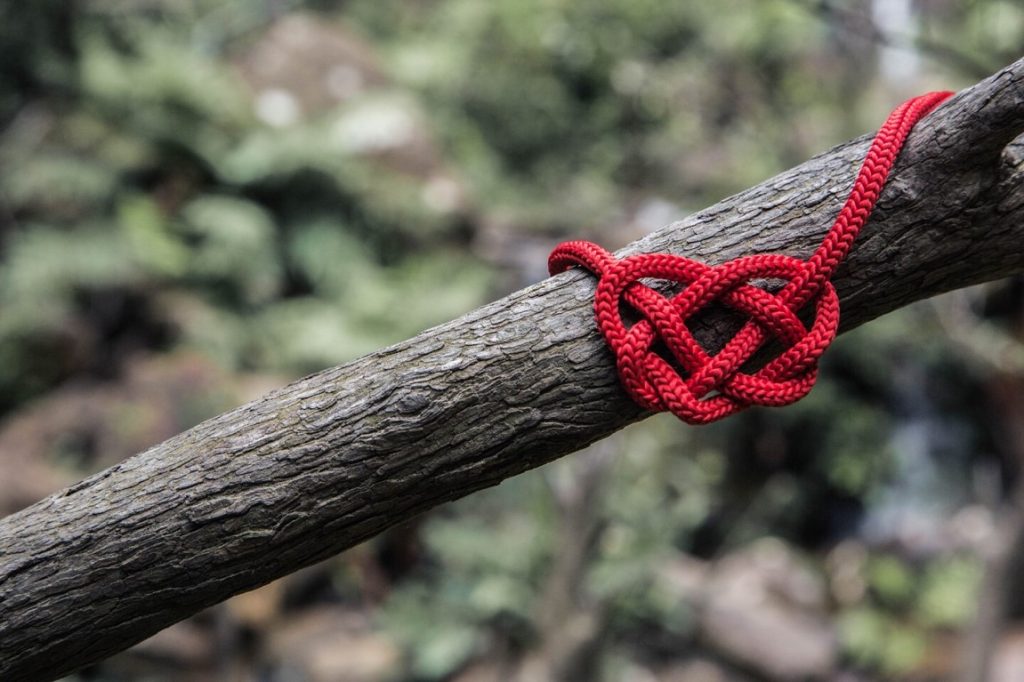
1. Our lovely couple, (your name) and (your partner’s name), have chosen to include the Cord of Three Strands unity ceremony in their wedding. This tradition has its roots in Ecclesiastes 4: 9–12. It says,
And though one might prevail against another, two will withstand one. A threefold cord is not quickly broken.
This Bible verse says that two is better than one. A person becomes stronger when they are with another person — the love of their life. Love makes all the difference; it allows us to weather even the most devastating storm. It is a superpower, to love someone and look at the world from a place of love.
There are three strands in the hands of (name). Two strands represent our couple, and the third strand symbolizes God. By braiding these cords together, they vow to be greater than the sum of their parts and have God at the center of their marriage.
(Name) will now braid these strands together.
As we stress time and time again, married life is not always easy. It has its ups, downs, and plateaus. Every time you hit a wall, come to a halt, or encounter something unexpected, remember to look at these braided strands and remind yourself of your promise to one another.
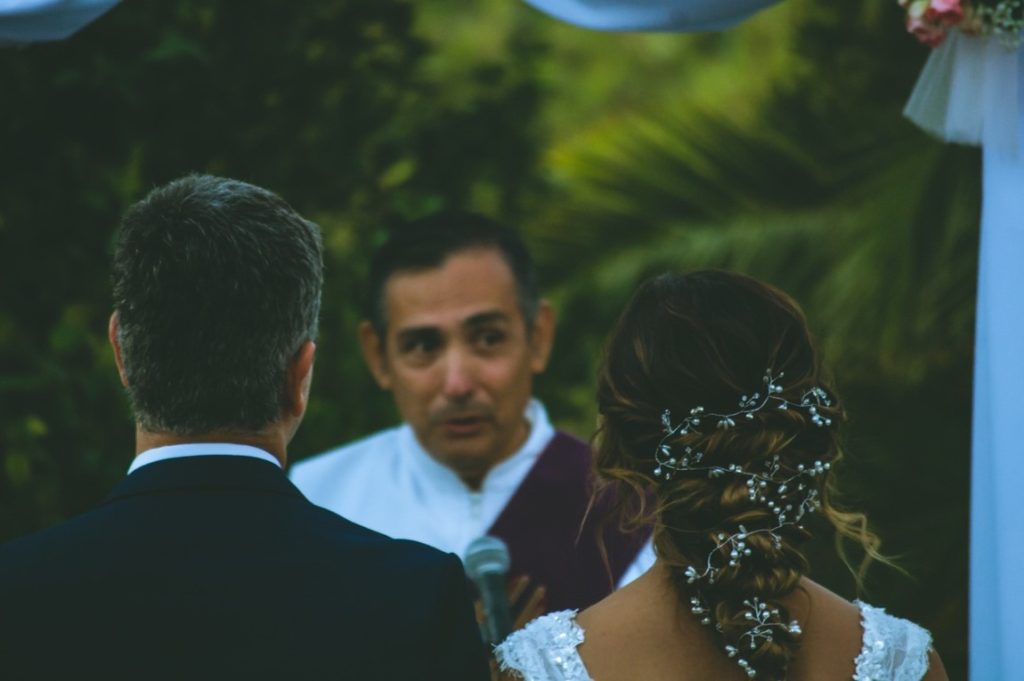
2. Today, (your name) and (your partner’s name) will be tying God’s Knot in a tradition called The Cord of Three Strands. People say it takes two to have a healthy marriage, but in reality, it takes three: one man, one woman, and God.
It was God who gave life to (your name) and (your partner’s name). It was with the help of God that their parents raised them to be mature and wise individuals. It was God’s plans that brought the two together. And as they stand in front of God today to solemnize their relationship, they ask for His blessing and guidance.
To tie God’s Knot, (your name) and (your partner’s name) have prepared three cords with different colors. (Your name) and (Your partner’s name), you may now braid the cords together.
As you all may have guessed, the white cord represents the bride and her purity. With this strand, she vows to honor her husband and serve the Lord.
The purple cord signifies the groom. With this strand, he vows to honor his wife and serve the Lord.
The gold cord stands for God and His glory. As the bride and groom submit themselves to the Lord, He will show them His unconditional love.
As you do so, you acknowledge that the sacrament of marriage is initiated and guided by God Himself. You must always put the Lord at the center of your union, as doing so ensures a strong and resilient partnership.
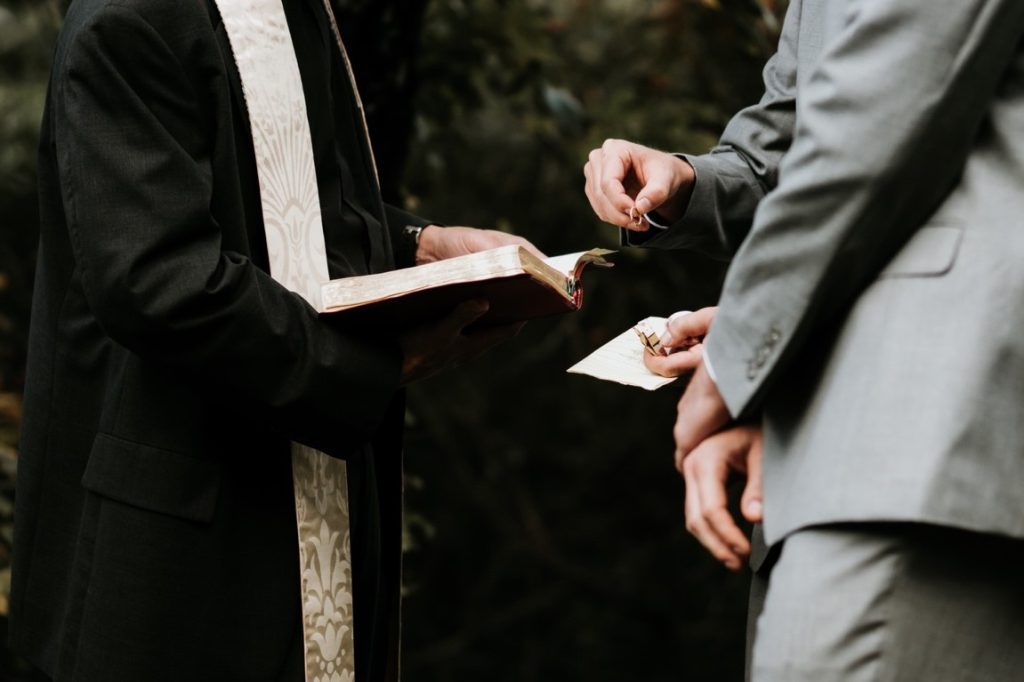
3. As an officiant, I have witnessed couples fortify their unity and affirm their partnership through a wide array of ceremonies. Some choose to do it through sand, wine, or candles.
Today, (your name) and (your partner’s name) decided to have The Cord of Three Strands ceremony. This ritual finds its roots in Ecclesiastes 4: 9–12. As I read the verses, (your name) and (your partner’s name), you can proceed to braid the cords.
Two are better than one because they have a good return for their labor: If either of them falls down, one can help the other up. But pity anyone who falls and has no one to help them up. Also, if two lie down together, they will keep warm. But how can one keep warm alone?
The white cord represents our lovely bride, (name of the bride). Traditionally, white represents a bride’s purity and innocence. However, for (name), white signifies a clean slate, a fresh start, and a new beginning.
The purple cord represents our charming groom, (name of the groom). For him, purple is the color of wisdom, creativity, romance, and passion.
Lastly, the gold cord represents their commitment to each other. As they braid these cords, they acknowledge that love is not merely a feeling, it is also a choice they have to make every day. It is something they must consciously foster and nurture.
To mark the end of this short but meaningful ceremony, let us always remember the last verse in Ecclesiastes 4: 9–12: “Though one may be overpowered, two can defend themselves. A cord of three strands is not quickly broken.”
Cord of Three Strands Wedding Script Free PDF
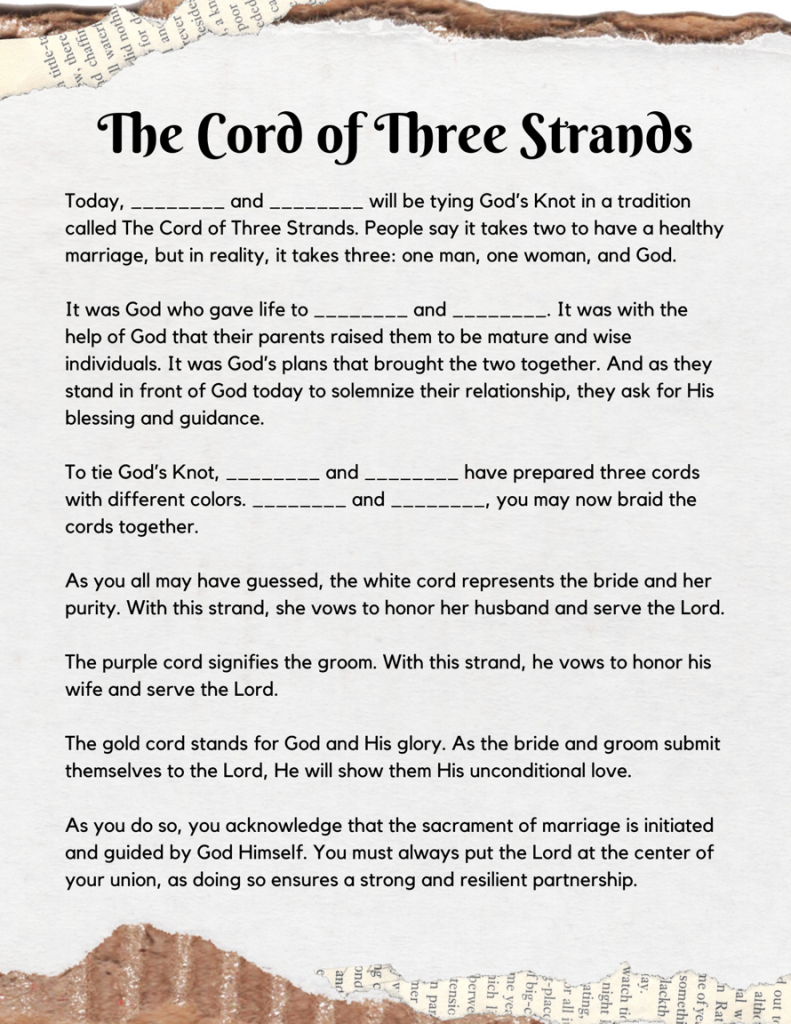
Click here to download the PDF.
